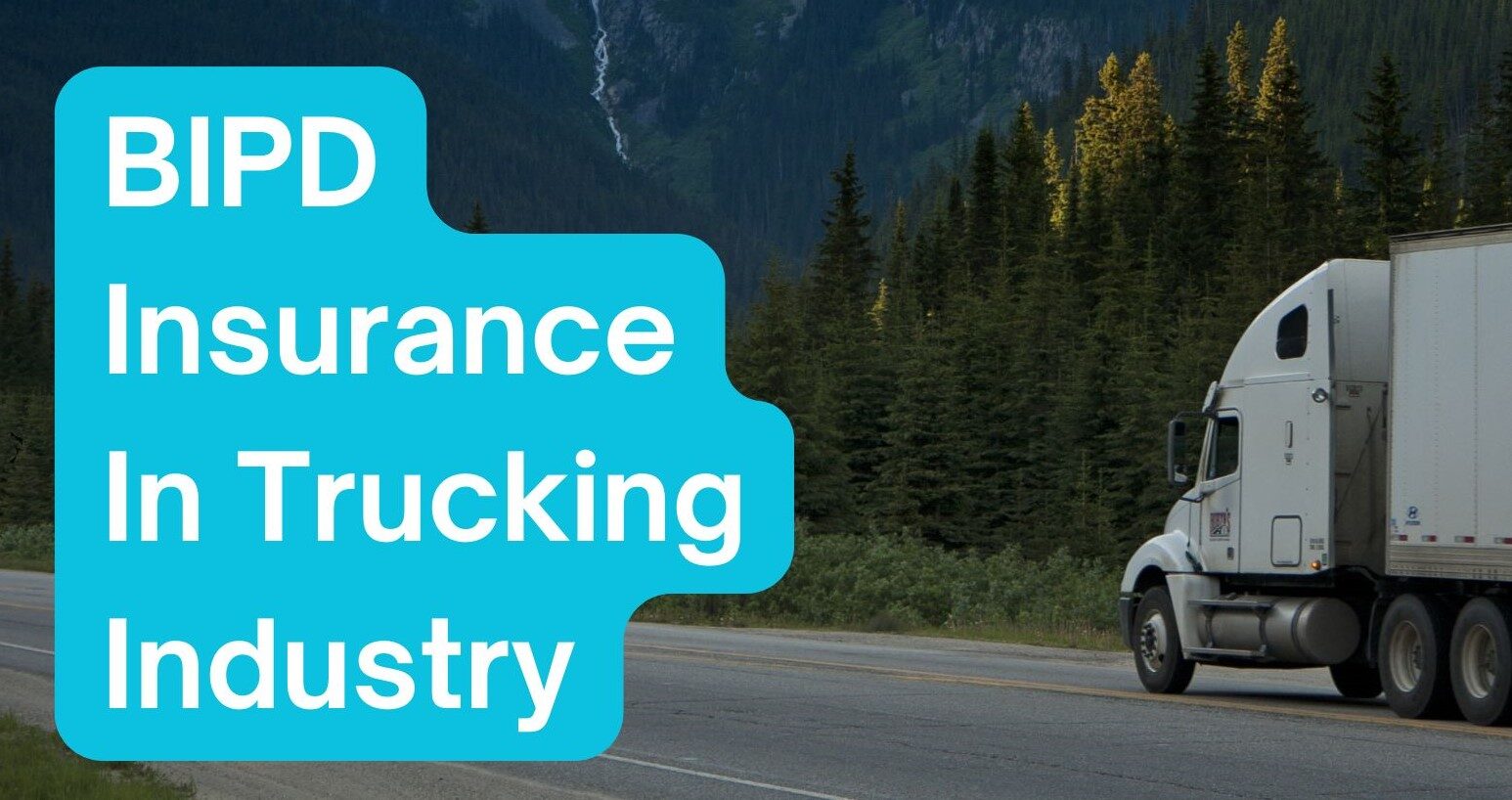Introduction
If you’re in the trucking business, you’ve probably heard the term BIPD insurance thrown around.
BIPD stands for Bodily Injury and Property Damage insurance, a key coverage that every trucker or trucking company must have.
This insurance protects you financially if you’re involved in an accident that causes injury to others or damage to someone else’s property. But what exactly does it cover, and why is it so important?
Let’s break it down!
What Does BIPD Insurance Cover?
There are two main parts to BIPD insurance,
1. Bodily Injury (BI) Coverage
This covers medical expenses, lost wages, and legal fees if someone is hurt in an accident that your truck is responsible for. This can include:
- Hospital bills for injured individuals
- Rehabilitation or therapy costs
- Compensation for lost income if they can’t work due to the injury
- Legal defense if a lawsuit is filed against you or your company

2. Property Damage (PD) Coverage
This covers repairs or replacement costs if your truck damages someone’s property. Common examples include,
- Other vehicles involved in an accident
- Structures like buildings, fences, or even public infrastructure like signs and guardrails

BIPD insurance only covers third-party damages and injuries, meaning it won’t pay for repairs to your own truck or cover injuries to your driver.
For that, you’d need additional coverage like Physical Damage Insurance.
Why is BIPD Insurance Crucial for Trucking?
Let’s face it: commercial trucks are heavy-duty machines. When accidents happen, the damages can be significant—both physically and financially.
That’s where BIPD insurance comes in, acting as a financial shield to protect you from paying out of pocket for expensive medical bills or property repairs.
Without it, a single accident could bankrupt a trucking business, especially if you’re hit with a lawsuit.
Even more importantly, BIPD insurance is required by law under the Federal Motor Carrier Safety Administration (FMCSA) regulations.
To legally operate on U.S. roads, your trucking company needs to carry a minimum amount of BIPD coverage.
Here’s a quick look at the minimum coverage amounts:
- $750,000 for general freight haulers in vehicles over 10,001 lbs.
- $1,000,000 to $5,000,000 for trucks carrying hazardous materials, depending on the cargo.
Who Needs BIPD Insurance?
Whether you’re an independent owner-operator, a fleet owner, or a freight broker, you need BIPD insurance.
It’s not just a suggestion—it’s a requirement.
For trucking companies, this coverage ensures they’re financially protected against third-party claims, while freight brokers often require carriers to have BIPD before they’ll work with them.
How Much Does BIPD Insurance Cost?
The cost of BIPD insurance can vary, but typically, trucking companies pay between $5,000 and $12,000 annually for this coverage. Several factors influence the cost, such as:
- Type of Cargo: Hauling hazardous materials or high-value goods will increase your premium.
- Location: Some states have higher accident rates, which can drive up insurance costs.
- Driver Safety Record: A clean safety record can help lower your premiums, while a history of accidents will raise them.
- Amount of Coverage: Higher coverage limits naturally come with higher premiums, but it’s often worth the investment for peace of mind.
How to Choose the Right BIPD Insurance

Here are a few tips to make sure you choose the right BIPD policy for your trucking business,
- Assess Your Needs
Consider what type of cargo you’re hauling, your routes, and the size of your fleet. Riskier operations may require more coverage. - Compare Quotes
Don’t just settle for the first insurance provider you talk to. Shop around and get quotes from different companies. Specialized trucking insurers often offer the best options. - Understand Legal Requirements
Make sure you meet or exceed both federal and state insurance requirements. Being underinsured can lead to costly legal troubles if an accident occurs. - Consider Bundling Policies
BIPD insurance only covers third-party claims, so you may need additional policies like Cargo Insurance or Physical Damage Insurance to protect your trucks and cargo. Many providers offer bundles at discounted rates. - Review Your Policy Annually
As your business evolves, so do your insurance needs. Review your policy every year to ensure you still have the right coverage, and adjust as necessary.
Conclusion
BIPD insurance is not only a legal requirement but also a smart investment in your business’s future. It protects you from the significant financial fallout that can come with accidents on the road.
Whether you’re an owner-operator or run a large fleet, having the right amount of coverage ensures your business stays safe, compliant, and profitable.
Be sure to assess your needs carefully, compare policies, and stay up-to-date with federal and state requirements.
For more information on trucking insurance regulations, check out the FMCSA website.
FAQs on What is BIPD Insurance in Trucking
- Is BIPD insurance mandatory?
Yes, it’s required by law for all commercial trucking companies operating on public roads in the U.S. The amount of coverage depends on your truck’s weight and the type of freight you’re hauling. - What’s the difference between BIPD insurance and general liability insurance?
BIPD insurance only covers accidents involving your truck, while general liability covers other business-related liabilities, such as slip-and-fall injuries at your office. - Does BIPD insurance cover damages to my own truck?
No, BIPD covers third-party injuries and property damage only. You’ll need Physical Damage Insurance to cover repairs to your own truck. - What happens if I don’t have BIPD insurance?
Operating without BIPD insurance is illegal and could lead to severe penalties, including fines, the suspension of your operating authority, and personal liability for accident-related costs. - Can I lower my BIPD insurance costs?
Yes! Maintaining a strong safety record, investing in driver training programs, and comparing quotes from multiple insurers can help you reduce your premiums.
Stay tuned to our blog for more in-depth articles and helpful insights on commercial trucking insurance and everything you need to keep your business safe and compliant!
